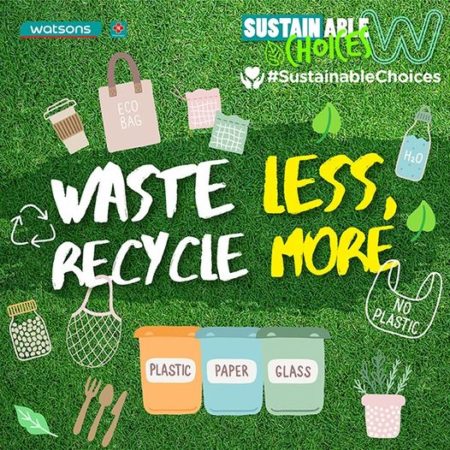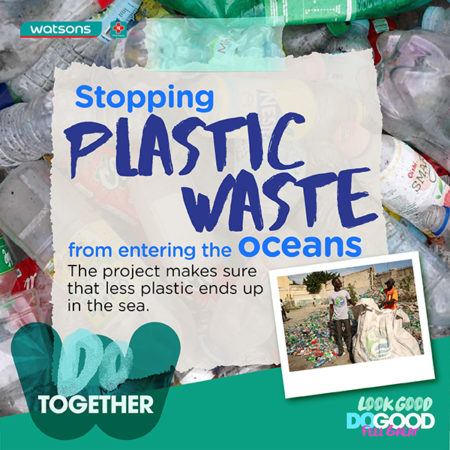
As part of its Sustainability Program, Watsons Philippines has entered a collaboration with Plastic Bank to help reduce plastic pollution and alleviate poverty by creating livelihood.
Plastic waste is a big problem for the environment and humanity in general: Every minute, one garbage truck of plastic is dumped into the ocean. If this continues unabated, there will be more plastic than fish in the oceans in 30 years. Sadly, the Philippines is one of the top 3 contributors to this plastic problem.
Sustainability has always been part of the Watsons DNA. Recognizing that the ocean stores a quarter of CO2 from the atmosphere and up to 93.4% of heat caused by the greenhouse effect, Watsons is committed to reducing the overall impact of its own brand plastic packaging so that it may contribute to ocean protection.
The A.S. Watsons Group has banned the use of microplastics in its own brand of rinse-off cosmetics or personal care products since 2014. By the end of 2019, this ban has been extended to all brands so no rinse-off cosmetics or personal care products from any brand are sold at any Watsons stores.

Watsons Philippines offers its customers four Sustainable Choices: Clean Beauty (mindfully created products without “unwanted” ingredients), Refill and Reduce (refilling bottles and reusing containers), Better Ingredients and Better Packaging.
Through its Impact Program Collaboration with Plastic Bank, the health, wellness, and beauty retailer will continue to Do Good for the Oceans by committing to the prevention of 50,000 kg of plastic bottles from entering the world’s oceans – the equivalent of 2.5 million bottles over the first 12 months.
“At the heart of Look Good, Feel Great is Do Good. Watsons has always been at the forefront of sustainability and this collaboration with Plastic Bank only further reinforces our commitment to helping make this world a better place,” said Viki Encarnacion, Watsons PR and Sustainability Director.
“We are happy to team up with Watsons Philippines – a company that shares our vision on creating a regenerative economy. This collaboration showcases our unified goal of stopping ocean plastic while creating more opportunities for people living in vulnerable coastal communities,” said David Katz, Founder, and CEO of Plastic Bank.

